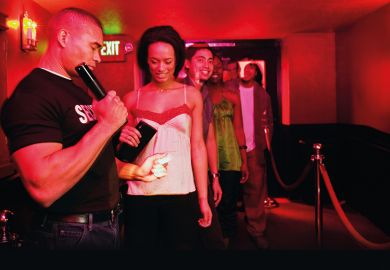Both the University of London and the Warburg Institute are claiming success in a long-running legal battle over the institute’s independence after a High Court ruling was published.
The Warburg Institute, which holds about 350,000 books in its Bloomsbury library, was originally established in Hamburg in 1900 by Aby Warburg, a Jewish intellectual.
The collection of about 80,000 books were shipped to London in 1933 to escape destruction by the Nazis and were accepted by the University of London under a deed of trust in 1944.
However, tensions between the university and the Warburg, regarded as one of the world’s leading arts and humanities libraries, have grown in recent years since London more than doubled an estates charge on the institute in 2007-08.
The university says the “space charge” – which it says rose from about £8,000 in 2006-07 to £643,000 in 2007-08 - is line with normal full-economic cost principles used by other universities.
However, the Warburg claimed the charge, plus the withdrawal of other funds, made the institute’s position untenable and was a breach of the 1944 trust deed, which said it should be “adequately equipped and staffed as an independent unit”.
The two parties were unable to reach an agreement and, following the involvement of the Attorney General and the Charity Commission, the matter finally came to court this year.
In a judgment published on 6 November, Mrs Justice Proudman finds “the levying of space charges…is not, to my mind, permissible”.
The “UOL only has a right to be indemnified in respect of the actual, properly incurred expenditure on the Institute…not in respect of UOL’s costs on its other property”.
“The imposition of university-wide space charges flies in the face of this provision as it merely treats the Institute as a constituent part of UOL without regard to its special character or its position as an independent unit,” the judgment continues.
However, she gave the university leave to appeal four separate parts of her decision. It has three months to consult its trustee and decide whether it wishes to take the case, which it says has already cost the university “hundreds of thousands of pounds”, to the Court of Appeal.
Margaret McGowan, chair of Warburg’s Advisory Council, said after the hearing that it was “pleased to receive the judgment representing years of hard work” and welcomed the judge’s ruling on space charges.
“We are frustrated that the university appears to wish to continue to spend its time and money on furthering the legal dispute rather than find a solution to secure the Warburg Institute’s long-term future,” she added.
Leticia Jennings, of solicitors Bates Wells Braithwaite, which represented the Warburg, said she was pleased the “High Court has rejected the University of London’s claims that all additions to the Warburg Institute since 1944 belong to the University, and instead agreed that they form part of the Institute”.
“Furthermore, the judge…held that the University is obliged to provide funding for the activities of the Warburg Institute.”
However, the university claimed the “judge has found in favour of the university on almost every point that was of importance to us”.
These points include noting that the block grant funding from the Higher Education Funding Council for England belongs to the university, not to the Warburg, and that its governance arrangements are in line with the 1944 trust deed.
Vice-chancellor Sir Adrian Smith said he was “delighted” to have clarification on the main issues raised before the court.
“The university has always maintained its desire to preserve the vision of Aby Warburg,” he said.
“Now, we must look forward, and get back to the task of supporting this unique institute and the academic community who value it so highly.”
He denied that the university had ever wanted to split the collection, calling the claims “wholly unfounded”.
“We are also aware of rumours that there were other interested parties wanting to move some or all of the collection to Hamburg or New York”, he said, adding that “today’s ruling will ensure that we keep the collection in the university here in London”.
Register to continue
Why register?
- Registration is free and only takes a moment
- Once registered, you can read 3 articles a month
- Sign up for our newsletter
Subscribe
Or subscribe for unlimited access to:
- Unlimited access to news, views, insights & reviews
- Digital editions
- Digital access to THE’s university and college rankings analysis
Already registered or a current subscriber? Login




